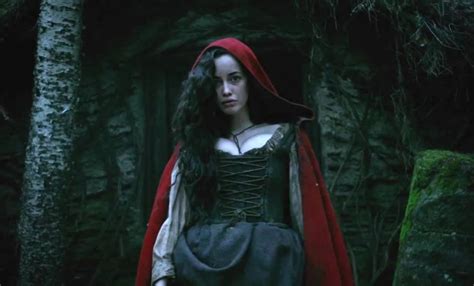I recently watched The Witch (2015). More folk horror than Lovecraftian, The Witch nevertheless hits the mark for lovers of psychological and slow-building horror.


Set in (I think) 17th century New England, a family is banished from their Puritan community over a religious dispute. They build a farm, and the film concerns itself with what happens after that. Spoiler alert: bad things happen, and witchcraft is involved. I’m not going to say any more than that, because this is the type of film where knowing less about the plot going in means that you’ll enjoy it more.
More generally, witchcraft crops us pretty often in the Mythos. Dreams in the Witch House is an obvious example of a Lovecraft story, but he did seem to mention Salem quite regularly, as I recall. Also, a lot of his stories were set in New England, and that’s where Salem is.

Game-wise, witches just work. All you need to do is swap Satan out for another entity and you’re done. Satan makes an excellent avatar of Nyarlathotep, Cthulhu can send people dreams, and I’m sure you could think of others. Witches appear in published scenarios An Amaranthine Desire (Nameless Horrors), The Doors Beyond Time (Cthulhu Dark), and others.
Add to this the history of real-world witchcraft, religious panics and witch trials, and any Keeper has fertile ground for a potent home-brewed scenario capable of not only creeping your players out, but provoking thought and discussion as well. Issues like the patriarchy, religious intolerance, mob justice, petty grievance, and injustice can all be explored in light of the all-too-real roles each of those factors played in the historical persecution of witches.

Another point relates to a relatively recent development in the Cthulhu world: increased emphasis on antagonists as thinking beings with understandable human motivations. I find this particularly interesting. A witch, for example, may begin as an oppressed woman with few options in a restrictive society. Perhaps circumstances (and evil forces) conspire to put her in a desperate situation where her only viable option is an alliance with a power she doesn’t fully comprehend. And once she crosses that line, there’s no going back. So is she evil, or did she make a terrible mistake, perhaps one she regrets? Of course, by the time the players encounter her, she’ll be totally terrifying.

Of course, there are lots of types of witches. Common, burned-out tropes include the glamorous witch and the old hag. I personally prefer a witch with a personality and an interesting back story: an ordinary person who got into witchcraft and changed over time. And there’s also the witch you never see. She’s out there somewhere and she does stuff. People find things, they have scary dreams. Weird events occur.

In conclusion, I would like to sound clever by stating that witches are a powerful tool for bringing not only terror but nuanced psychological and historical discussion to the gaming table. But really, witches are just cool and I like them. Enough said.


Leave a Reply
You must be logged in to post a comment.